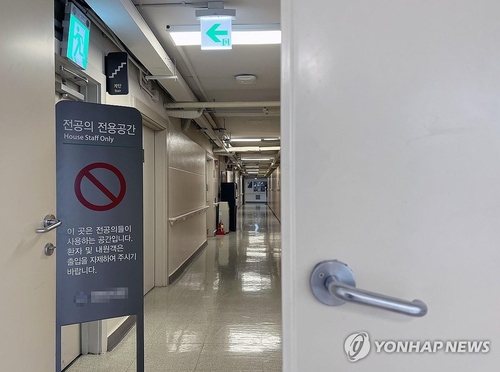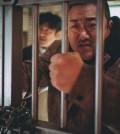- California Assembly OKs highest minimum wage in nation
- S. Korea unveils first graphic cigarette warnings
- US joins with South Korea, Japan in bid to deter North Korea
- LPGA golfer Chun In-gee finally back in action
- S. Korea won’t be top seed in final World Cup qualification round
- US men’s soccer misses 2nd straight Olympics
- US back on track in qualifying with 4-0 win over Guatemala
- High-intensity workout injuries spawn cottage industry
- CDC expands range of Zika mosquitoes into parts of Northeast
- Who knew? ‘The Walking Dead’ is helping families connect
Nurses authorized to expand role in emergency units as walkout by trainee doctors enters 18th day
Nurses were authorized to expand their role in the emergency rooms of major hospitals Friday to cope with a shortage of medical staff, as a mass walkout by about 12,000 trainee doctors entered its 18th day and caused disruptions in health care services.
Some 93 percent of 13,000 trainee doctors have left their worksites in a prolonged protest of the government’s plan to boost medical school enrollments by 2,000 next year, according to the health ministry.
To make up for the shortage of medical staff, emergency units at military hospitals have been opened to the public, and health authorities began formally allowing nurses at major hospitals to perform CPR and administer medication for emergency patients Friday.
The health ministry launched a pilot program late last month, enabling nurses to undertake specific responsibilities held by doctors in a restricted capacity.

Local hospitals have been experiencing cancellations and delays in surgeries and emergency medical treatment, as medical interns and residents continue their walkout despite the government’s call for them to return by the end of February.
Despite the government’s warnings, the number of defiant trainee doctors has been on a steady rise. As of Thursday, 11,985 trainee doctors at 100 teaching hospitals had left their worksites, accounting for some 93 percent of all junior doctors, according to the ministry.
Second Vice Health Minister Park Min-soo told reporters that the government plans to set up a hotline to protect trainee doctors who have remained on duty, amid concerns they could face a backlash from those on the walkout.
The government vowed to take legal action against junior doctors making threats to their colleagues, or impeding their return to hospitals.
“There have been reports that trainee doctors returning to hospitals are labeled as betrayers, with their names being blacklisted, followed by hateful comments,” Park said, noting the ministry has asked the police to look into such allegations.
Park noted that essential treatments for patients in critical condition remain mostly unaffected, while acknowledging that certain non-urgent surgeries are experiencing delays as the walkout entered its third week.
The vice minister also clarified that trainee doctors who have left their worksites will not be provided with wages during periods in which they have not engaged in work.
South Korea will also seek to institutionalize expanding the role of nurses though gathering opinions from the nurse community, Park added.
Health authorities also launched legal procedures to punish junior doctors defying the government’s order, warning their licenses could be suspended for at least three months.
The police questioned leaders of the Korea Medical Association, a major lobby group of senior doctors, the previous day on the charges of violation of the medical law and obstruction of justice.
The government has been pushing to increase physician numbers as a way to resolve the shortage of doctors in rural areas and essential medical fields, such as pediatrics and neurosurgery, and also given the super-aging population.
Doctors say the quota hikes will undermine the quality of medical education and other services and result in higher medical costs for patients. They have called for measures to first address the underpaid specialists and improve the legal protection against excessive medical malpractice lawsuits.








![trump[reuters]](http://www.koreatimesus.com/wp-content/uploads/2024/05/2023-06-10T235115Z_520439966_RC2NG1AXVQJW_RTRMADP_3_USA-TRUMP-copy-120x134.jpg)


